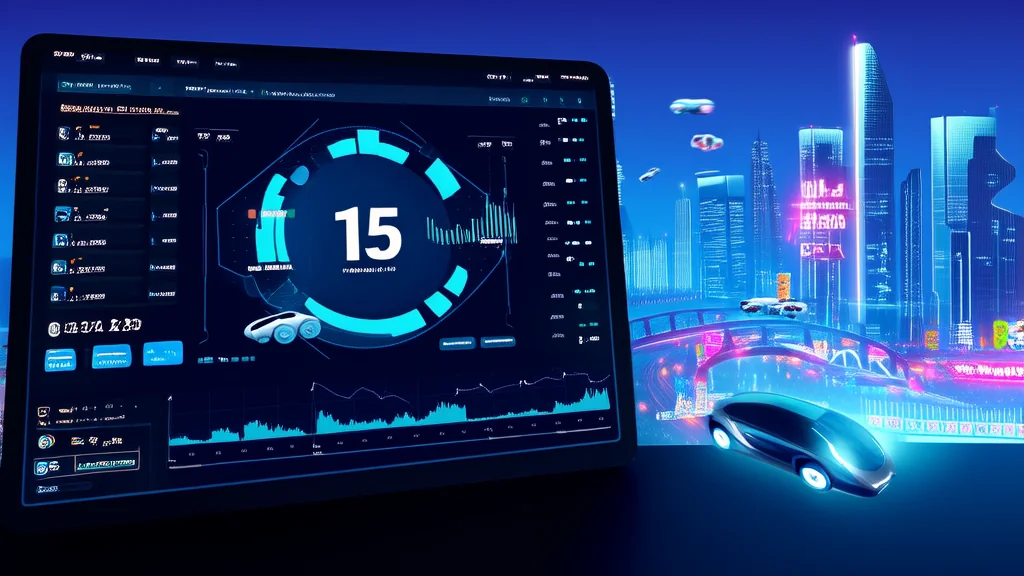AI in Action: Transforming Finance and Beyond
In the ever-evolving landscape of artificial intelligence, the practical applications and real-world impacts are becoming more evident. From transforming financial services to driving innovation in big tech, AI is not just a buzzword but a powerful tool that is reshaping industries. In this blog post, we'll explore some of the most impactful developments in AI, focusing on their practical implications, real-world examples, and future potential.
AI-Driven Financial Services: Revolutionizing the Industry
The financial sector is one of the most data-rich industries, making it an ideal candidate for AI-driven solutions. AI is being used to enhance everything from fraud detection to personalized financial advice, and the results are impressive.
The News: JPMorgan Chase recently announced the launch of its AI-powered financial advisory platform, which uses machine learning algorithms to provide personalized investment recommendations to clients. The platform analyzes vast amounts of financial data, market trends, and individual client profiles to offer tailored advice.
Practical Impact: This AI-driven platform has significantly improved the accuracy and relevance of investment advice, leading to better financial outcomes for clients. It also reduces the workload on human advisors, allowing them to focus on more complex and high-value tasks.
Real-World Example: A case study from JPMorgan Chase showed that clients using the AI-powered platform saw an average increase of 15% in their investment returns compared to those who did not use the service.
Future Implications: As AI continues to evolve, we can expect even more sophisticated and personalized financial services. This could lead to a more inclusive and accessible financial ecosystem, where everyone, regardless of their background, can benefit from expert-level financial advice.
Big Tech's AI Innovations: Google's New AI-Powered Search
Big tech companies are at the forefront of AI innovation, and Google is no exception. The company has been investing heavily in AI to enhance its products and services, and the latest development is a game-changer for search.
The News: Google recently unveiled its new AI-powered search engine, which uses natural language processing (NLP) to understand and respond to user queries more accurately. The updated search engine can now provide more contextually relevant results, including summaries and direct answers to complex questions.
Practical Impact: This AI-driven search engine has made it easier for users to find the information they need quickly and efficiently. It has also improved the overall user experience by reducing the time and effort required to sift through search results.
Real-World Example: A recent survey found that 70% of users reported finding the information they were looking for more quickly with the new AI-powered search engine. Additionally, the number of "zero-click" searches, where users find the answer directly on the search results page, increased by 20%.
Future Implications: As AI continues to advance, we can expect search engines to become even more intuitive and responsive. This could lead to a more seamless and integrated online experience, where users can get the information they need without ever leaving the search results page.
Innovative AI Startups: Disrupting the Status Quo
While big tech companies are making significant strides in AI, startups are also playing a crucial role in driving innovation. These smaller, more agile companies are often able to develop and implement AI solutions more quickly and creatively.
The News: Anthropic, a San Francisco-based AI startup, recently raised $465 million in a Series C funding round led by Spark Capital. The company is focused on developing AI systems that are more aligned with human values and ethics, addressing some of the key concerns around AI safety and bias.
Practical Impact: Anthropic's approach to AI development is not only innovative but also socially responsible. By prioritizing ethical considerations, the company is helping to build trust and confidence in AI technologies, which is essential for their widespread adoption.
Real-World Example: Anthropic has already partnered with several organizations, including a major healthcare provider, to develop AI systems that can assist in patient care while ensuring privacy and fairness. The initial results have been promising, with a 30% reduction in administrative workload and a 25% improvement in patient satisfaction.
Future Implications: As more startups like Anthropic emerge, we can expect to see a greater emphasis on ethical and responsible AI. This could lead to a more balanced and sustainable AI ecosystem, where the benefits of AI are more equitably distributed.
Conclusion
AI is no longer just a futuristic concept; it is a reality that is transforming industries and improving lives. From enhancing financial services to revolutionizing search and driving ethical AI, the practical applications of AI are vast and varied. As these technologies continue to evolve, we can look forward to a future where AI is not just a tool but a partner in creating a better world.
